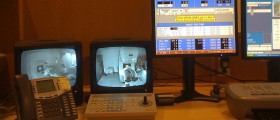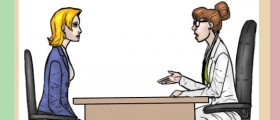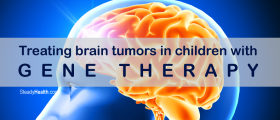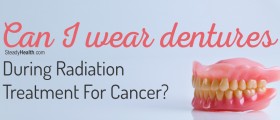
Radiation Therapy - Overview
Radiation therapy, also known as radiotherapy, is a treatment modality in which ionizing radiation is used to eradicate malignant tumors or control their growth. Radiation therapy may be applied in curative and palliative purposes. It can be also applied locally or in a form of total body radiation which basically depends on the malignant disease. Total body radiation is, for example, necessary prior to bone marrow transplantation. Apart from being used for treatment of cancers radiation therapy is also highly effective treatment modality for several more medical conditions such as trigeminal neuralgia, severe thyroid gland disease, pterygium, pigmented villonodular synovitis and prevention of keloid scar growth and heterotopic ossification.
Radiation therapy is applied either in a form of teleradiotherapy (which uses external beams) or in a form of brachytherapy (in which a source of radiation is inserted into patient's cavities or directly into a malignant tumor).
Radiation Therapy- Side Effects
Side effects of radiation therapy develop as a consequence of damage to the healthy body cells. Yes, the goal of the treatment is to kill malignant cells, but during the very treatment even health cells are exposed to radiation and are reversibly damaged. There is a variety of side effects of radiation therapy and they generally depend on the particular body area that is being treated.
Generally all patients who undergo radiation therapy suffer from fatigue. The skin area exposed to radiation may become inflamed and a patient may develop radiation dermatitis. This is why during radiation therapy one must take good care of his/ her skin.
Side effects of radiotherapy of brain tumors include mild to severe headache, nausea, vomiting, and hair loss from the exposed parts of the skull. The hair will grow back again after 2 to 4 months. Depending on which part of the brain is being treated one may also suffer from ear pain and inflammation of the optic nerve.
In case of head and neck tumors side effects of radiation therapy may include mouth sores, sore throat, chewing and swallowing difficulties, changes in taste and dry mouth. Men usually lose their facial hair and in some cases there are skin changes which require temporary cease in treatment.
If chest or lungs are treated with radiation therapy one may suffer from cough, shortness of breath, chest discomfort or even chest pain, swallowing difficulties and skin changes.
Radiation therapy of the abdomen typically causes nausea, vomiting, abdominal discomfort and cramping, loss of appetite and subsequent loss of weight and sometimes skin changes.
Radiation therapy of the pelvis and its internal organs may cause painful and frequent urination, loose stool, diarrhea, cramping and skin changes.
And finally, side effects of radiation therapy of the extremities may induce skin changes.

















Your thoughts on this
Loading...